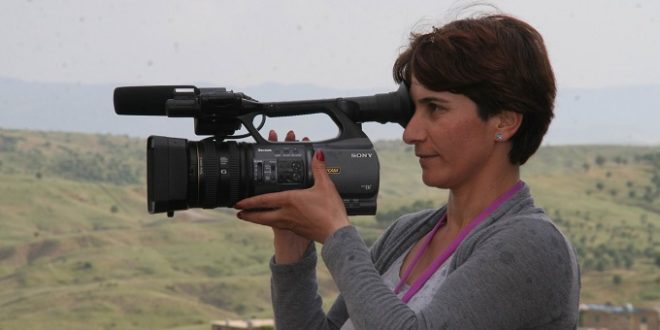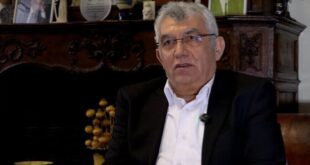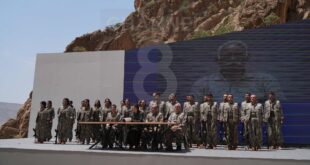Fatos’s 20 years have passed in constant dislocations and resistance for relocation as a result of persecutions against her and her family members. Beginning with the leaving behind of her village, she no longer could stop her never-ending move to new lands where she has not yet been successful to settle permanently.
The inhabitants of a small village half an hour from the de facto Kurdish capital of Turkey’s Diyarbekir/Amed were preparing themselves for a new evening. Everywhere around the village was rapidly becoming green as the generous Mesopotamian sun began to dominate the blue sky. The sun was setting behind the vineyards and fruit trees which burst into colorful buds and the Kharacdagh Mountain forming a high and a very long shape in the north-west had already turned from purple to dark blue. However, one of the most tranquil time of the day did not continue for too long and the inhabitants were caught unawares at once by the appearance of the military vehicles coming from the main road in the east.
Detention
The Turkish military convoy consisting of German panzers and some tracks carrying heavily armed gendarmeries reached the village very fast and directly turned left towards a single house at the end of the narrow way. A team of soldiers with automatic rifles got off the first lorry very quickly and entered the house at once. Without stopping to shout and swear at the residents, they checked the identity cards and immediately detained a girl and her brother. Facing the efforts of the terrified father, his wife and their oldest daughter tried to prevent the detention in vain and they were struck with butts of rifles by the furious soldiers. The parents’ moaning mixed with the crying of their small children who witnessed this cruelty in front of their eyes. After suppressing the residents’ desperate resistance, the soldiers left dragging the girl and the boy behind them.
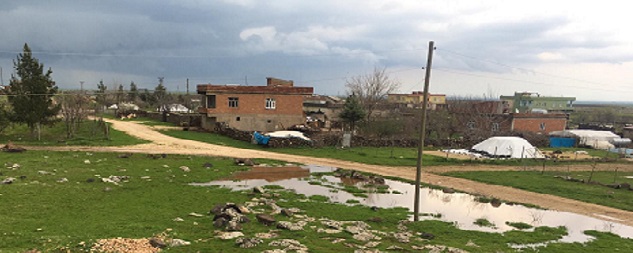
She was just 14 years old girl and her brother even younger than her, 13 years old, when this incident happened in 1992. Fatoş tells that the soldiers tied her and her brother to the panzer with a rope and they were dragged for some hundred meters in front of her family members.
She was just 14 years old girl and her brother even younger than her, 13 years old, when this incident happened in 1992. Fatoş tells that the soldiers tied her and her brother to the panzer with a rope and they were dragged for some hundred meters in front of her family members. It still hurts her when she is asked to give some details and she does not want to speak much about what happened in those hard times that began with this barbarity.
“The road which they dragged us on was full of stones of every size, paved by our family to ensure that the route was clear in rainy weather. Our clothes were torn and we had many injuries in every part of our body already in the first minutes. After that they took us to the military vehicles separately and on the road to Diyarbekir we were beaten by the soldiers furiously. They were beating my back, waist, legs and even head with butts of rifles. You could not recognize me any more with blood shedding from so many injuries in my body when I was brought to JITEM (Gendarmerie Military Intelligence) building,” she told.
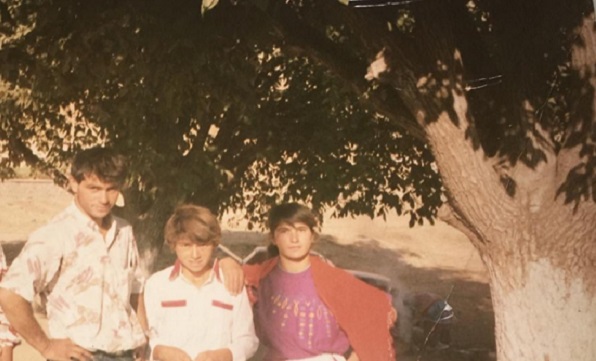
Torture and first imprisonment
“My body couldn’t endure this monstrosity and I frequently fainted. After the torture, I would be brought to my dark cell with mice running around. I did not have any idea about whether it was day or night until I was taken from there.
She was put in a dark cell blindfolded and was beaten heavily by some military guardians until she fainted. This was just a welcoming party and she would face the worst in the coming days and nights. She stayed in solitary confinement for 25 days and almost every day she was taken to the interrogation room blindfolded and with her hands tied. She was exposed to high pressure water many times by her torturers all of whom were men. “Electric shock was applied to my toes and my fingers. I was suspended by my arms, deprived of food, water and sleep and even deprived of toilette,” she says with agony and is not able continue to talk more. During these hardest times of her life she had to sleep on the naked floor and listen to the crying and screaming of her brother who was being tortured in the room next door.
“My body couldn’t endure this monstrosity and I frequently fainted. After the torture, I would be brought to my dark cell with mice running around. I did not have any idea about whether it was day or night until I was taken from there. When I was brought to the court, my family who had come for my trial saw me for the first time and were completely shocked. I had changed so much and lost a significant amount of weight!” she says.
At the swift hearing in Diyarbekir, the court pronounced valid the indictment which was based on a police interrogation document signed by her under the interrogators’ threats. She was sentenced to one year imprisonment on the ground that she was a member of an illegal organization which was not the case.
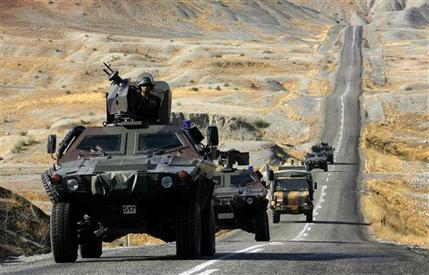
Staying in the morgue
The family would not have a normal life after this attack on their home and imprisonment of two of their children. Approximately one year following her release she was arrested for the second time by more than a dozen of special team policemen. The police wearing masks kidnapped her from home and, as her family was crying and shouting, they fired into the air to keep them away. This time she stayed in detention for 3 days and was sentenced very swiftly by the court to a 6-year prison sentence.
This time the prison was too hard for her to adapt and she was feeling very weak to do this. “The first year was very hard for me and I was suffering immensely in this prison very far from my hometown. When there was nobody around me I used to cry and this continued no less than a year. This was the only way I could feel relieved somehow,” she says with sadness as, apparently, she is still suffering remembering the past.
“The first year was very hard for me and I was suffering immensely in this prison very far from my hometown. When there was nobody around me I used to cry and this continued no less than a year. This was the only way I could feel relieved somehow.”
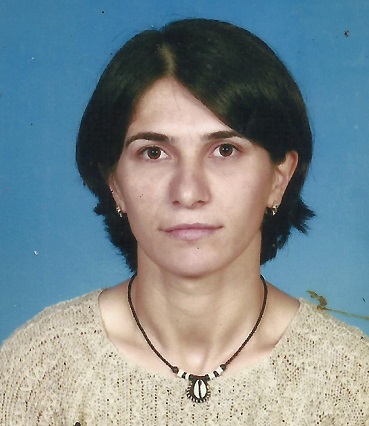
The prison in Turkey has never been a place where you serve your sentence peacefully but aplace where you have been punished everyday. Especially the prisons in 1990’s were known for state brutality in the form of torture and many kinds of violations against political prisoners.
Fatoş tells that the room where she stayed with other female prisoners was attacked by the male guardians many times and they were wounded as a result of this violence. Once she was hit with an iron stick in her head and as a result she was heavily wounded. Seeing that she fainted and lost too much blood, the guardians took her to the morgue of a hospital. Fortunately one of her friends there realized that she was still breathing and saved her life by persuading guardians to take her to the intensive care unit.
Beginning work at Kurdish media
She was released from the prison in 1999 after terminating her sentence but there was not avillage to go back to this time. The small and peaceful village with its marvelous vineyards had been completely destroyed by the Turkish Army as a part of the military campaign against the villages were not in the line of the state.
When she accepted the proposal of work coming from the Kurdish weekly Azadiya Welat (Freedom of Country) just two months had passed after her release from the prison. She worked at the regional office of the weekly for more than three years. Apart from coordinating the work in different cities within the region, she used to send news and interviews to the weekly published in Istanbul. At the end of 2002, she was invited to the weekly’s headquarter in Istanbul to work in the administration.
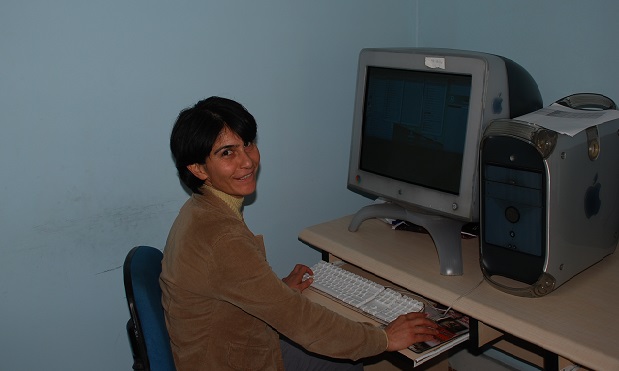
She did not like her duty in administration as it did not allow her to work directly on creating pages. She succeeded in her search to be active in journalism when she began to work for the monthly publication of Bariş Anneleri (Mothers of Peace). She was fully responsible for this publication from preparing the content to designing the pages and cover. Her work here continued only one year because she received an invitation from the Gundem (Agenda) newspaper where she had imagined working one day. At the newspapers’ headquarter in Istanbul she was responsible for designing a page everyday which was very stressful but at the same time very exciting.
Fatoş says that she worked for more than five years for Gundem daily and learnt much during this period. When she decided to go back to the heart of the Kurdish region to work for a press section of a Kurdish municipality, 8 years passed since she had left her homeland. She was very happy both to be able to work in her hometown and take full responsibility of the press section of the municipality which had a very large population of more than 350 thousand people. She worked hard from the beginning, because she had been the only one working in this section for a long time. Press releases, news, photos, camera shooting, monthly bulletin with content and design were some of her duties which required immense efforts. She would work until midnight and frequently on the
During the extensive purging campaign, Fatos and her husband were dismissed from their jobs with a false accusation of cooperation with terrorist organizations along with tens of thousands of other people. They were neither shown any evidence proving this accusation nor given any chance to defend themselves against this ruthless decision.
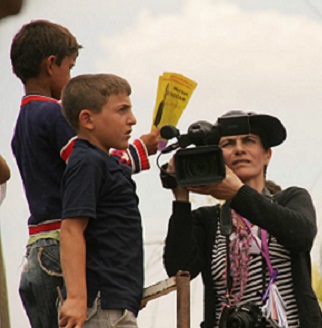
Dismissal and exile
It was not a period in Turkey when its citizens who worked hard to do their best for their people and country would be rewarded. After the controlled coup attempt in 2016, Turkey very rapidly came to resemble a tribal state. During the extensive purging campaign, Fatos and her husband were dismissed from their jobs with a false accusation of cooperation with terrorist organizations along with tens of thousands of other people. They were neither shown any evidence proving this accusation nor given any chance to defend themselves against this ruthless decision.
After the dismissal two of Fatos’s sisters working for different Kurdish municipalities were also dismissed from their jobs, while her brother working for another municipality was unable to resist against the pressure by a new administration appointed by the state’s trustee and had to resign. After having been dismissed and facing heavy surveillance and threats by the police, Fatos decided to move to the western Turkey where her husband had been dismissed. She hoped to live there, far away from the center of the conflict and oppression. Unfortunately, the conditions were never right for her to leave and instead, she stayed to witness as ethnic and social oppression surmounted after the state’s crack down against all kinds of opposition. As a result, she had to hide her ethnic background and social preferences many times with her husband and tried hard to leave this far end of the country. When she was threatened by the police in a phone call in the office where she had been working for 8 months, an alarm bell rang for them again. They admitted that there was no other option in front of them but but to leave their beloved country.
On a dark night of December, Fatos and her husband crossed the Maritsa River. After a long and exhausting walk in the swamp areas along the river, they felt the freedom with the rising of the sun on the Greek soil.
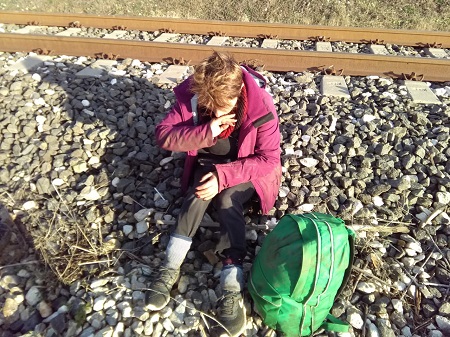
Walking to the freedom
On a dark night of December, Fatos and her husband crossed the Maritsa River. After a long and exhausting walk in the swamp areas along the river, they felt the freedom with the rising of the sun on the Greek soil. It was hard to leave everybody behind as they left the country for an uncertain period. Despite this hard reality, they felt relieved under the rising sun of the new day which separated the time of persecution and the time of political freedom. But their happiness for freedom did not last long as they were detained by the police as soon as they left the railway and tried to enter a small town.
Police identification was very detailed, including taking their fingerprint, their pictures from every angle and most importantly body search. Especially the policewoman was very rude against Fatos during the body search. All her joy of being in a free country died in the face of such treatment. Yet, they did not face the worst part of their detention which would begin when they were taken from the Isaakio Police and Border Guard Station. The long journey to Fylakio Detention Center inside the closed section of an old van, on the dirty and naked floor was enough for them to understand that they were not welcomed.
As she speaks about the conditions of this center, she says that the harsh body search which she was subjected to before and the inhuman conditions inside the center caused her a trauma that has affected her since then. “The hardest thing that I could not adapt to from the very beginning was the crowded room where we were put and its unimaginably bad odour. It was like the place of last judgment where the people from different nations account for their actions in the world. When one morning my hope of being taken from there vanished, I burst into tear at the iron door of the room where I was trying to breathe in some fresh air,” she says with agony in her voice.
As she speaks about the conditions of this center, she says that the harsh body search which she was subjected to before and the inhuman conditions inside the center caused her a trauma that has affected her since then.
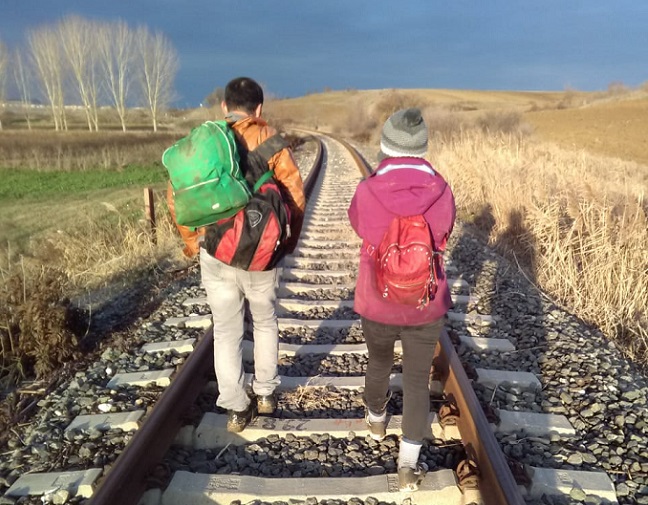
She has become tired of all these suffering she had to go through in different places and in different time frames. All she wants now is just to be given a chance to settle in this free country as a free woman far from all sufferings of the past.
Her long stay in Athens following the release from the infamous detention and reception center changed her negative view about the Greece. She saw the people’s hospitality and solidarity on many occasions and decided to draw a line between the official policy towards refugees and the Greek people’s peaceful stance on this subject. Anyway, passing two months in Athens without any accommodation and financial support, in addition to constant searches and trials as she was trying to go to another country, ruined her psychology considerably. At the end, she was able to make a journey from Greece but had to leave her husband behind as their financial opportunities did not allow them to leave together.
Fatos’s 20 years have passed in constant dislocations and resistance for relocation as a result of persecutions against her and her family members. Beginning with the leaving behind of her village, she no longer could stop her never-ending move to new lands where she has not yet been successful to settle permanently. It is not clear whether Switzerland will be her last stop in this long journey or will be just a stop on the route of this unending migration. She has become tired of all these suffering she had to go through in different places and in different time frames. All she wants now is just to be given a chance to settle in this free country as a free woman far from all sufferings of the past.
Infowelat
 Infowelat Enformasyon Ji Bo Welat
Infowelat Enformasyon Ji Bo Welat
